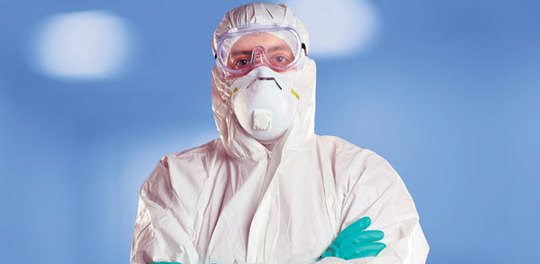Local hospitals are prepared for Ebola virus
Dublin People 24 Oct 2014
LOCAL Northside hospitals are prepared to deal with any future suspected Ebola cases, despite reports that Irish emergency departments aren’t ready for the deadly virus.
Last week the Mater Hospital’s readiness was tested when a woman suspected of contracting Ebola was taken from a house in Tyrrelstown, Dublin 15, on Monday, October 20, and admitted to the National Isolation Unit there.
Witnesses reported that the woman, believed to have recently returned home from Africa, was brought to the hospital by paramedics in protective suits under Garda escort.
A cordon was also in place around the Mater but the disease was quickly ruled out after the patient was assessed by medical staff.
Reports emerged the following day that there were concerns overcrowded emergency departments could hamper efforts to contain Ebola in Ireland.
However, officials at the Mater say they’re ready to tackle any future outbreak.
“As the National Isolation Unit for infectious diseases, the Mater Hospital is prepared for any cases of Ebola that may be referred,
? a spokesperson told Northside People.
“I can confirm a patient was transferred to the Isolation Unit as a precautionary measure and it was confirmed the patient was not suffering from Ebola.
?
The National Isolation Unit at the Mater is responsible for caring for patients who have hazardous and highly infectious diseases such as Tuberculosis and SARS or Pandemic Influenza like Bird Flu or Swine Flu.
It also provides essential care for patients with HIV, MRSA, meningitis and malaria and the unit would be on the frontline in the event of an outbreak of bioterrorism.
In Dublin 15, from where last week’s suspected Ebola case emerged, Connolly Hospital has its own Ebola plan, which was developed in consultation with clinical and infection prevention and control teams.
“This includes agreed standard operating procedures for departments such as the Emergency Department, laboratory etc,
? a spokesperson said.
“Hospital staff will be briefed on the most up-to-date information on an ongoing basis.
?
That information is generated from the HSE’s Health Protection Surveillance Centre (HPSC), which produces the latest data on Ebola for the general public and health professionals.
“This information includes extensive guidance for health professionals, hospitals, GPs and laboratories,
? the spokesperson stated.
In addition, there is extensive information on travel advice for the public and a range of other information on the Ebola section of the HPSC website (www.hpsc.ie). The HSE has also provided information posters for airports and ports for passengers travelling to or from countries affected by Ebola.
“The WHO is not recommending any other actions in airports or ports in Ireland in relation to Ebola,
? the HSE spokesperson added.
“Anyone returning to Ireland from West Africa should watch out for fever, headaches and body aches for three weeks after they have returned.
“If they get sick within 21 days of their return they should contact their doctor and tell them of their recent travel.
“There are no cases of Ebola in Ireland. The overall risk of a case of Ebola being imported into in Ireland is low.
“If a case is confirmed in Ireland, the primary concerns will be treatment of the patient, while maintaining medical confidentiality, and supporting his or her family and identifying any possible contacts.
“A statement from the Government information Office would be released once the diagnosis is confirmed and necessary controls put in place.
?











